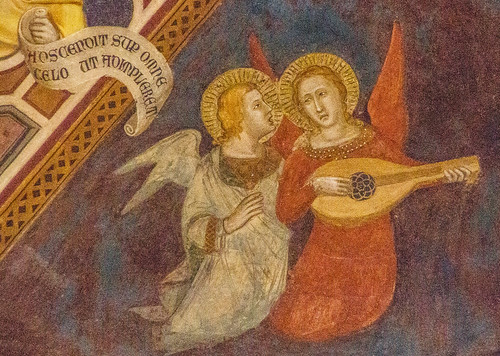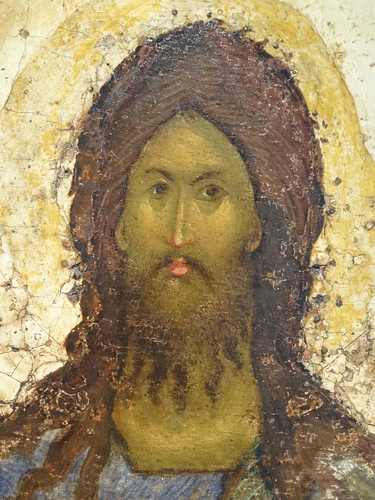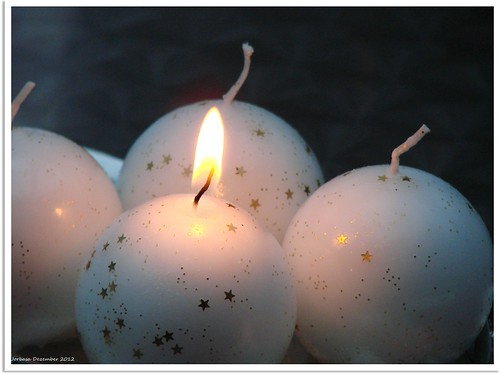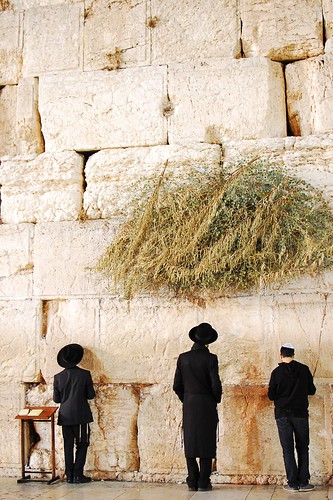St. Luke's Anglican Church, Burlington, On (Diocese of Niagara)
24/25 December 2016
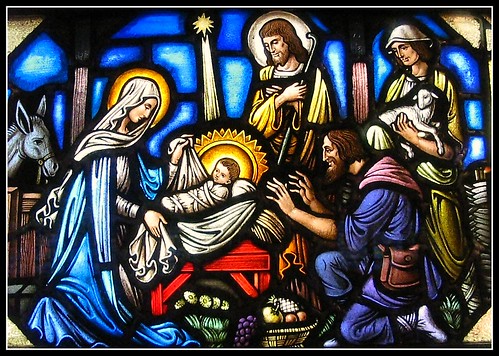 |
| Photo Credit: Loci Lenar on Flickr.com |
Christmas Eve/Day 2016
Isaiah 9: 2-7
Psalm 96
Titus 2:
11-14
Luke 2: 1-20
Once again, we have actually made it
through the busy, noisy, celebratory and distracting season which is our
commercial lead up to this holy day, and have found ourselves in this holy
space listening to the story of Christmas and remembering what it really is
about for us.
Of course all the other distracting
elements that have been going on around us really had their beginnings in the
celebration of holy things: so much of our Christmas decorations, our Christmas
lights remind us of the triumph of light over darkness at this darkest time of
the year. The gift-giving in celebration of God’s great gift so freely given to
us.
Even Santa is, of course, a take on St.
Nicholas who generously, and secretly, gave money to three poor girls whose
family would never have been able to afford a dowry. Without the dowry the
three girls future would have been very bleak.
It’s a little harder to find the holy
meaning in elves, reindeer and the myriad of other characters which have firmly
entered into our Christmas traditions. But more modern Christmas stories which
have become our tradition including everything from the Grinch that stole
Christmas to Ebenezer Scrooge are all stories of the transformation which can
happen in the human (or Grinch) hearts through the miracle of Christmas.
This year, I sent out on facebook a drawing
of scrooge being approached by different kind of a ghost: The caption says:
“I am the ghost of Christmas Future
Imperfect Conditional”, said the Spirit, “I bring news of what would have been
going to happen if you were not to have been going to change your ways.”
In any case, most of the traditions and
stories of Christmas time are stories about transformation: from darkness to
light, from poverty and fear to abundance and security, from distrust and
enmity to sharing and love. They are stories about relationship which come
about because of the transformation which happens within.
This is what our Christmas lessons are
about as well.
Isaiah speaks to a people in a dark time.
War and the threat of war are nigh. But Isaiah tells King Ahaz to open his eyes
and to see a light which is shining in the midst of the darkness. And the
realization of this light will be in the birth of a child through whom God’s
Kingdom shall reign.
Of course, we don’t have to look far to see
a similar reality to what King Ahaz was experiencing. In the Middle East
(Ahaz’s part of the world) there certainly is war and rumours of war today. It is
a dark time in our world, too, just as it was for the people of Isaiah’s time.
We are desperately in need of some of this
transformation from a time of darkness, fear, poverty and enmity to light,
security, sharing and love.
But a wonderful secret of which Paul writes
to Titus is that through Christ, God’s grace has arrived and the transformation
in this means that we can the agents of God’s grace, living lives of goodness
and grace and, in turn, transforming the world as we build new relationships of
sharing and love.
That’s what the Christmas story in the
Gospel of Luke is about as well. The most surprising things about the story of
Jesus’ birth is that it happened in such a poor and quiet way. It was only the
shepherds – the most humble of folk who were out in the fields outside of
Bethlehem who got the glorious vision. The regular upstanding townsfolk of
Bethlehem itself are completely unaware of the miracle that is taking place in
the midst of them. And not only is the author of the universe being born into
human flesh, he is being born in the most humble of ways.
What could be the meaning in this? God, in
choosing to become human, chose not the great entry of a King, but chose to
come as the least of us. He was born in a barn. Is there anybody here who was
born in a barn? Jesus’ birth was humbler than any of ours, to show us that
absolutely no one is excluded from his knowledge and experience. Jesus, the
King of the universe, is born as least to show that his love is for everyone in
between. No one is left out.
God, in becoming human chooses to enter
into our experience: into the joys and the sorrows, into the messiness of life
and even into the experience of death in order to defeat its grip upon us and
to transform it into eternal life.
At the same time, God, in choosing to
become human shows us that our humanity matters. That it is honoured and that
it can be transformed into something divine even. Jesus became human not just
to save us. He came to transform us, so that we can be engaged in the
transforming grace of God in acts that show light in the darkness, love and
sharing in situations of desperation and enmity.
Nine days ago several of us drove to the
airport and waited with growing excitement as the Syrian family we have
sponsored was going through the final immigration process to allow them entry
into Canada. We had been planning for this moment for well over a year. And
many hundreds of people had been involved in preparing a house for them and
raising the funds that we will need to support them for their first year in
Canada.
After a four hour wait our family, Said and Wisal (Dad and Mom) and children:
Ahmad, Rayan, Maria and Omar walked through the gates: very happy and very
tired. In those nine days we have seen already how lives have been transformed.
They had been refugees in Lebanon for five years. But not only their lives have
been transformed: all of us who have been working for this have experienced
transformation as well. Even the lady in the supermarket (just another customer),
who, when she realized that this was a Syrian family who had just arrived, was
transformed. Not knowing what to do: she welcomed them with tears in her eyes
and a smile on her face and gave the two girls $5 each. The girls received it
with thanks, not really realizing at first what it was (though they figured it
out pretty soon!)
Three days ago, we had a special Community
Lunch. We do one every 1st 3rd and 5th
Wednesday of most months, but this was our “Christmas” version. We had so many
more people there and we sat and ate roast beef together and listened to a
volunteer band of buskers singing to the music of violins, guitars, mandolins,
drums and more. We brought together poor people and not so poor, lonely people
and groups of friends, old and young. Some of the people who were there
wouldn’t have very many opportunities to have a celebratory meal over the
holidays. Tomorrow some of our own volunteers will assist at the Christmas Day
dinner at East Plaines United Church which we also support financially. Once
again there will be transformative experiences in which God’s grace will flow
through the work of very human hands.
Four days ago, it being a Tuesday, it was
our Food for Life day, as we give out free groceries to any who need them. It
was special because we also gave out turkeys. In addition, many of our
parishioners filled bags full of stocking stuffers for either adults or
children. Many going to families who would never be able to afford to buy them
for their own children. Once again stories of some people who have been
reaching out with God’s grace to transform the lives of others. These are only
a few stories, and stories like these continue throughout the whole year. But
it is what God enables through us as God’s grace transforms our own hearts.
It’s what the essence of Christmas is all about.
And it’s what being human is all about
because of Christ’s birth. God choosing to be human means that the words “I’m
only human” are nonsensical. To be human means so much more than to be “only”
human. It means God is absolutely committed to you being you. So be you, as
only you can be, transformed by the miracle of Christmas to be an agent of
God’s transforming grace active in human lives. A joyous Christmas to you.
Amen.

